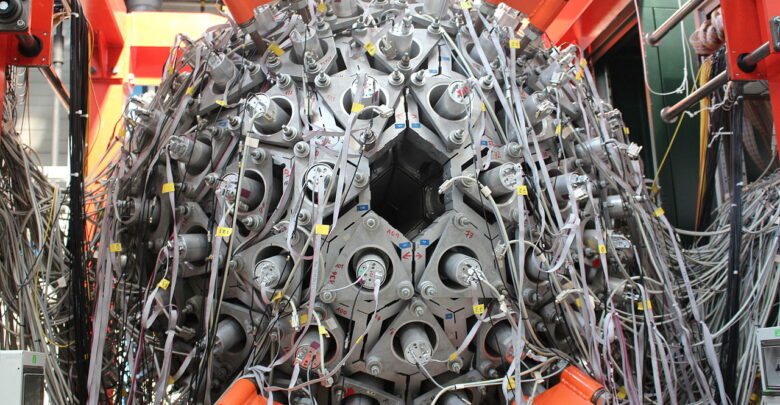Future of Work
Quantum Supremacy vs Neuralink- The Future is Robots

Introduction
Artificial Intelligence (AI) is quickly adapting itself into different industries- from self-driving cars to smart devices like Google Assistant and Alexa, the use of Artificial Intelligence seems inevitable in today’s world. It is so intertwined with our lives that it almost makes it difficult to perform any task without the help of AI. Artificial Intelligence uses the process where they are able to make decisions similar to that of humans. The technology has advanced to such great extents where the machines, robots, and algorithms are doing most of the everyday work. This article talks about two important technological advancements by Google and Neuralink and assesses the supremacy of robots vs. human robots.
Quantum Supremacy
The Multinational Technology Company, Google came out with an article in October 2019, that it has finally achieved Quantum supremacy through its Quantum computer called Sycamore which was a much-anticipated milestone. But what is Quantum supremacy and why is it such a big deal?
John Preskil, who is a Professor of theoretical physics at the California Institute of Technology proposed the term Quantum Supremacy in 2012. Quantum supremacy is the point where Quantum computers outperform the classical computers.
What are Quantum Computers?
There are two kinds of computers around the world today. The first one is the Classical Computer, which is also known as a personal computer. The second type of computer is the Quantum Computer. The classical computer works with the help of chips known as bits and can be in any position between 0 to 1. Any website which you are using or accessing or any photo is made up of millions of these bits in the combination of codes, written under a fixed algorithm consisting of digits 0 and 1. On the other hand, the bits which are used in the Quantum Computer as known as qubits. These qubits can be in any position of 0,1 or intermediate i.e. superposition.
The result which you get in superposition is based on probability but it is possible to tune it more likely towards the state we want. There is another quality in Quantum Computer called entanglement. In entanglement, several qubits are brought together and joined and the whole thing is treated as one single object. For example, when you join two qubits together, you will get a mixture of four states, i.e.- 0-0, 0-1, 1-0, 1-1. Each time a qubit is added, the number of states doubles and goes up exponentially. When we compare a classical computer with a quantum computer, the classical computer takes time in order to search for information because the classical computer searches information one after the other. In the case of Quantum Computers, there are special algorithms where one can enhance the probability of the state one wants and diminish the probability of the state one doesn’t want. The function of superposition and entanglement together creates a Quantum Computer. It is also interesting to note that there is not just one single kind of Quantum Computer. Universal quantum computing can theoretically simulate any quantum system and is the fundamental computing machinery of the universe. Non-universal quantum computers are focused only to solve niche problems. In order to understand how good a quantum computer is, a qubit is one of the measures to understand the supremacy of the quantum computer, the higher the measure the better the quantum computer.
How do we assess quantum supremacy?
There is not much of a difference between the classical computer and quantum computer, the only differentiating factor is that it is a quantum computer. In order to assess the supremacy between a classical computer and quantum computer, you give the same problem to both the computers and assess it by comparing which computer solves the problem faster. This is what the quantum computer sycamore, invented by Google had achieved recently and Google claimed it has accomplished quantum supremacy. The researchers at Google claimed that the processor of sycamore took approximately 200 seconds to sample one instance of a quantum circuit whereas a classical computer would take 100,000 years to perform the same task. Sycamore used 53 qubits to outperform the classical computer. But IBM has disputed the assertion made by Google. IBM claimed that the computation by Classical Computer will take less than 2 and a half days and not 100,000 years as claimed by Google.
Does the quantum supremacy make the quantum computer better than the classical computer?
The simple answer is No! The experiment carried on by Google on sycamore proves that the quantum computer could outperform the classical computer only in solving that one specific calculation. The research paper released by Google mentions that quantum computers will be useful in optimization problems, machine learning, material science, and chemistry. But the paper is not clear enough on whether the increase in the speed of the new quantum computer will be useful and to what extent in other applications. Sycamore is also not powerful enough to tackle other difficult problems.
Future of Quantum Computer
Businesses are hoping that furtherance of advancement in quantum computers will lead to development in the science and technical breakthrough. They are hoping that development in quantum computers will lead to new chemical reactions which would further help in the growth of new drugs, fertilizers, optimization of algorithms, and mathematical modeling. On the other end of the spectrum, there are researchers who are claiming that such inflated expectations will lead us nowhere. Others claim that the experiment carried on by sycamore was not a breakthrough and such an experiment has no practical application.
NEURALINK
Neuralink is the dream company of Elon Musk, which tries to connect the human brain with the internet. The goal of the company is to solve important brain and spine problems with a seamlessly implanted device. Since almost everyone will have some kind of neurological problem today or tomorrow, the company aims to prepare a generalized brain device that is both reliable and affordable. Neuralink aims to solve a problem related to memory, depression, insomnia, hearing loss and anxiety amongst the few problems later in future. The process includes correcting electrical signals sent by neurons into the brain. It is basically a deep brain stimulation where the robot puts electrodes into your brain. The link which shall be inserted at the top of your skull will be in the size of a large coin and the surgery will be performed by advanced robots. The complete procedure will take less than an hour and can be done without general anesthesia. Clinical studies on humans for implantation are yet to be done to be performed but in the live session conducted later in this year, Elon Musk showed the brain-machine interface implanted within a pig named Gertrude. The company has also received FDA breakthrough device designation in July 2020.
What does Neuralink aim to perform?
Elon Musk states that human cognition has two major systems:
1. Limbic system – where your emotions, your needs, and wants are processed
2. Cortex – where your thinking and planning takes place
3. Neuralink- developed by Elon Musk which shall be the third layer apart from the above two. It will be a digital superintelligence layer that will increase with the help of Computers and Artificial Intelligence.
When we operate our smartphones or computers, we use either finger or speech to control it. But when compared, fingers and speech seem to have low bandwidth form of communication, and hence a faster means to get information would be through Brain-Machine Interface (BMI). Hence, Neuralink aims to solve the problem of faster communication.
How does Neuralink work?
The human brain consists of thousands of neurons firing all the time in response to the electrical signals when we see, hear, move, talk, or walk and even think. Whenever a neuron is fired from the electrical signals there is an electromagnetic field created. The Neuralink when inserted into the brain is going to tap into these electromagnetic fields. It will interpret the data in either ones and zeroes to be used in the digital world. The advanced robot through surgery will put electrodes inside the brain. The electrodes will be sixty microns away to detect a fire within the neuron and serve as the interface. The electrodes will help us in recording information and decode it. The complete process works through neural stimulation. It is well known that electric current activates the muscles and nerves in our body. Neuralink tries to create a simulation in the temporal sequence across the many electrodes which makes it possible to create patterns of activity and evoke the desired result. The electrodes inserted into the brain will be able to understand electrical signal and then translate it into an algorithm. The Neuralink Chip, known as the N1 chip reads brain signals, amplifies and digitizes, and processes it. The company has claimed that we will be able to control basic devices like computers, smartphones, and maybe even type out thoughts with the help of the neural link.
The Neuralink will work in three stages
- Understanding and treating people with a brain disorder (Medical stage)
- Preserve and enhance one’s own brain
- Full Brain to Machine interface.
Neuralink and its future prospects
As of now, Neuralink aims to solve neurological problems related to vision, paralyzes, auditory loss, memory loss, depression, insomnia, stroke, brain damage, seizure amongst a few of the things. But this is not something which is relatively new. Scientists have created a device which helps in interpreting brain activity and simulating the neurons within the brain. In 2012, the technology was used on a paralyzed patient to control a robotic arm. This technique has also been used to cure Parkinson’s disease, OCD, and epilepsy. But Elon Musk rather has very ambitious ideas, he wants to use the Brain and Machine interface which could enable a new kind of communication or download memories, or use it for telepathy. Musk ultimately wants to submerge human and artificial intelligence together.
Conclusion
Quantum computer aims to overpower the classical computers by outperforming them in order to achieve quantum supremacy. Whereas Neuralink aims to achieve Brain to Machine interface. Both of these companies are trying to maximize and achieve technological advancement. Researchers believe that quantum supremacy can open a gateway for other technological advancements in the area of data security, creating hack-proof replacements but will not replace the classical computer. Neuralink creates an interface between the machine and the human brain which is also through a classical computer. Hence when we have to assess supremacy, quantum computers have proven to be faster than the classical computer. However, when we look at the problem from a different angle and understand it, the question is which technology will surpass the other? It becomes quite difficult to arrive at a conclusion because of both the technological advancements completely different, and pertain to different fields dealing with different problems and hence, cannot be directly compared and kept on the same pedestal. It is good to see that we are progressing upwards on the technology ladder but we must also ensure that we do not become too dependent on our machines tomorrow and reverse the cycle where our robots are leading us!
This article can be cited as:
Sanjana Sahay, Quantum Supremacy vs Neuralink- The Future is Robots, Metacept – InfoTech and IPR, accessible at https://metacept.com/quantum-supremacy-vs-neuralink-the-future-is-robots/ .
References
- Elizabeth Gibeny, Hello quantum world! Google publishes landmark quantum supremacy claim, Nature, 23rd October 2019, https://www.nature.com/articles/d41586-019-03213-z#ref-CR1
- Jermy Kahn, What Is Quantum Supremacy, and Why Is It Such a Computing Milestone?, Fortune, September 21, 2019 https://fortune.com/2019/09/20/what-is-quantum-supremacy/
- John Martinis and Sergio Boixo, Quantum Supremacy using a programmable superconducting processor, Google AI Blog, October 23, 2019 https://ai.googleblog.com/2019/10/quantum-supremacy-using-programmable.html
- Amit Katwala, Quantum computing and quantum supremacy, explained, Wired, 5th March, 2020, https://www.wired.co.uk/article/quantum-computing-explained
- Delia Paunescu, What is “quantum supremacy” and why is Google’s breakthrough such a big deal?, Vox, October 29, 2019 https://www.vox.com/recode/2019/10/29/20937930/google-quantum-supremacy-computer-physics-reset-podcast
- Kabir Firaque, Explained: What is quantum supremacy?, The Indian Express, 26th October, 2019 https://indianexpress.com/article/explained/explained-what-is-quantum-supremacy-claimed-by-google-6086628/
- Giacomo Valle, The Connection Between the Nervous System and Machines: Commentary, 6th November, 2019, Vol 21, No 11, JMIR Publications
- Andrew Jackson, Neuralink: brain hacking is exceptionally hard, no matter what Elon Musk says, The Conversation, September 9, 2020 https://theconversation.com/neuralink-brain-hacking-is-exceptionally-hard-no-matter-what-elon-musk-says-145711
- Isober Ashler Hamilton, Inside the science behind Elon Musk’s crazy plan to put chips in people’s brains and create human-AI hybrids, Business Insider, October 6, 2019, https://www.businessinsider.in/tech/news/inside-the-science-behind-elon-musks-crazy-plan-to-put-chips-in-peoples-brains-and-create-human-ai-hybrids/articleshow/71463463.cms
- Michael Brooks, Beyond Quantum Supremacy: The Hunt for Useful Quantum Computers, October 3, 2019, https://www.scientificamerican.com/article/beyond-quantum-supremacy-the-hunt-for-useful-quantum-computers/
- Frank Arute, Kunal Arya and John M.Martinis, Quantum supremacy using a programmable superconducting processor, Nature, October 23, 2019, https://www.nature.com/articles/s41586-019-1666-5





